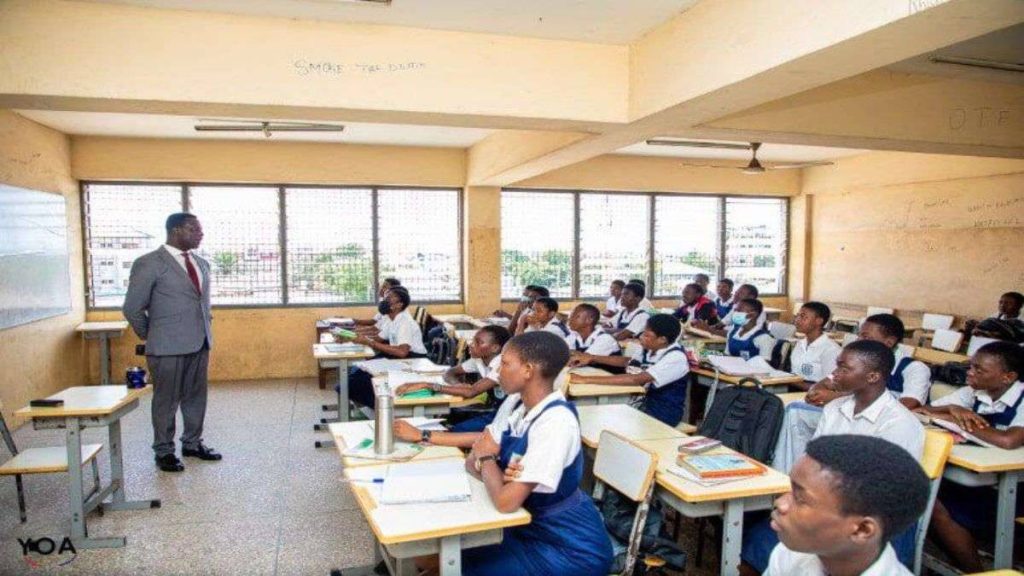MoE to launch subject-specific Artificial Intelligence Apps for SHSs

Subject-specific Artificial Intelligence (AI) Applications is set to be rolled out in Senior High Schools to enhance the delivery of the new second-cycle school curriculum, the Ministry of Education (MoE) has said.
In a statement sighted by Pretertiary.com, the Education Ministry said the move forms part of Ghana’s agenda to set the pace for ethical AI in education to transform teaching and learning across the country and inspire the continent.
The initiative, which is expected to support more than 68,000 teachers in delivering lessons to over 1.4 million learners, is aimed at enhancing education delivery without compromising Ghana’s ethical and cultural values.
The design of Apps, which aim to support over 68,000 teachers in delivering the new curriculum to over 1.4 million learners, was co-created by the Ghana Education Service (GES), the National Council for Curriculum and Assessment (NaCCA), the National Teaching Council (NTC),
Other co-creators are the National School Inspectorate Authority (NaSIA) and the Centre for National Distance Learning and Open Schooling (CENDLOS),
The Artificial Intelligence (AI) Application design also received input from Playlab AI, with support from Transforming Teaching, Education, and Learning (T-TEL) and the Mastercard Foundation.
Built on Ghana’s own curriculum materials, including teacher manuals, learner resources, and frameworks for national values, gender equality, and social inclusion, the Subject-Specific-Apps are designed to help teachers plan lessons and develop assessments more efficiently while ensuring alignment with national standards.
The Subject-Specific Apps are being introduced through the weekly Professional Learning Community (PLC) sessions organized by the Ghana Education Service in all 712 Senior High Schools (SHSs)
These sessions, according to the Ministry of Education (MoE) provide a platform for teachers to collaborate, test the tools, and provide feedback, ensuring that AI supports, not replaces, teacher expertise.
To ensure the Subject-Specific Apps are effective and appropriate, the Ministry, through NaCCA, has outlined a four-phase testing process:
1. Technical Accuracy Review – Verifying alignment with curriculum content.
2. Educational Quality Review – Ensuring pedagogical soundness.
3. User Experience Review – Testing functionality in pilot schools.
4. Regional Testing – Assessing readiness for broader rollout.
This initiative, which allows for continuous improvement and building trust among educators and stakeholders, is expected to be rolled out in October 2025 with training planned for over 7,800 school-based facilitators across the country..
“The Ministry of Education remains committed to ensuring that the use of AI in education is locally led, ethically grounded and focused on supporting teachers to improve outcomes for all learners,” MoE said in the statement.



